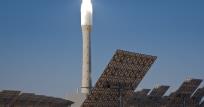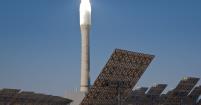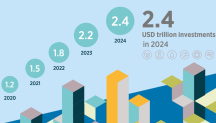

Djibouti Can Meet 100% of Energy Demand Through Renewables by 2020
Newsletter
Abundant renewable energy sources can solve Djibouti's energy access, energy security and unemployment concerns
Abu Dhabi, United Arab Emirates, 18 May 2015 – Developing Djibouti's significant renewable energy resources will allow the country to reach its goal of sourcing 100 per cent of its energy from renewables by 2020, according to a report released today by the International Renewable Energy Agency (IRENA). The Djibouti Renewables Readiness Assessment finds that the transition would be sourced mainly from geothermal, wind, and solar resources, as well as strengthening the existing interconnection with the Ethiopian grid, which currently delivers 65 per cent of Djibouti's electricity needs.
"The development of local renewable resources would provide an answer for Djibouti's energy access, energy security and employment needs," said IRENA Director-General Adnan Z. Amin. "The falling costs of renewable energy offers an opportunity for Djibouti to rethink its energy strategy, develop policies and build institutions that would create jobs, bring power to those currently without and deliver more reliable electricity services, all through clean, sustainable energy."
Roughly 55 per cent of the population of Djibouti does not currently have access to electricity. The country also remains heavily dependent on imported fossil fuels and power, which exposes it to fluctuating oil prices, blackouts and other service disruptions. Greenhouse gas emissions have also rapidly increased in the last 20 years due mainly to fossil fuels in the electricity mix and Djibouti's unemployment rate currently stands at 60 per cent.
The report highlights that the renewable energy sector employs more people on a megawatt-hour basis than the conventional energy sector and that off-grid renewable power can meet demand in unserved rural areas and replace existing diesel systems, reducing carbon emissions and improving air quality.
Renewables Readiness Assessments (RRAs) offer a holistic evaluation of conditions for renewable energy deployment in a country, and outline the actions necessary to further improve these conditions. The Djibouti RRA recommends the country undertake a number of concrete measures to support the implementation of renewable energy including a long-term energy plan; strengthening the legislative and regulatory framework; developing a clear rural electrification strategy; and providing financial support for small- and medium-sized solar PV enterprises, amongst other recommendations.
Since 2011, more than 20 countries in Africa, the Middle East, Latin America, the Caribbean, Asia and the Pacific Islands have undertaken the RRA process with IRENA to accelerate the deployment of renewable technologies domestically.
Download the full assessment.




